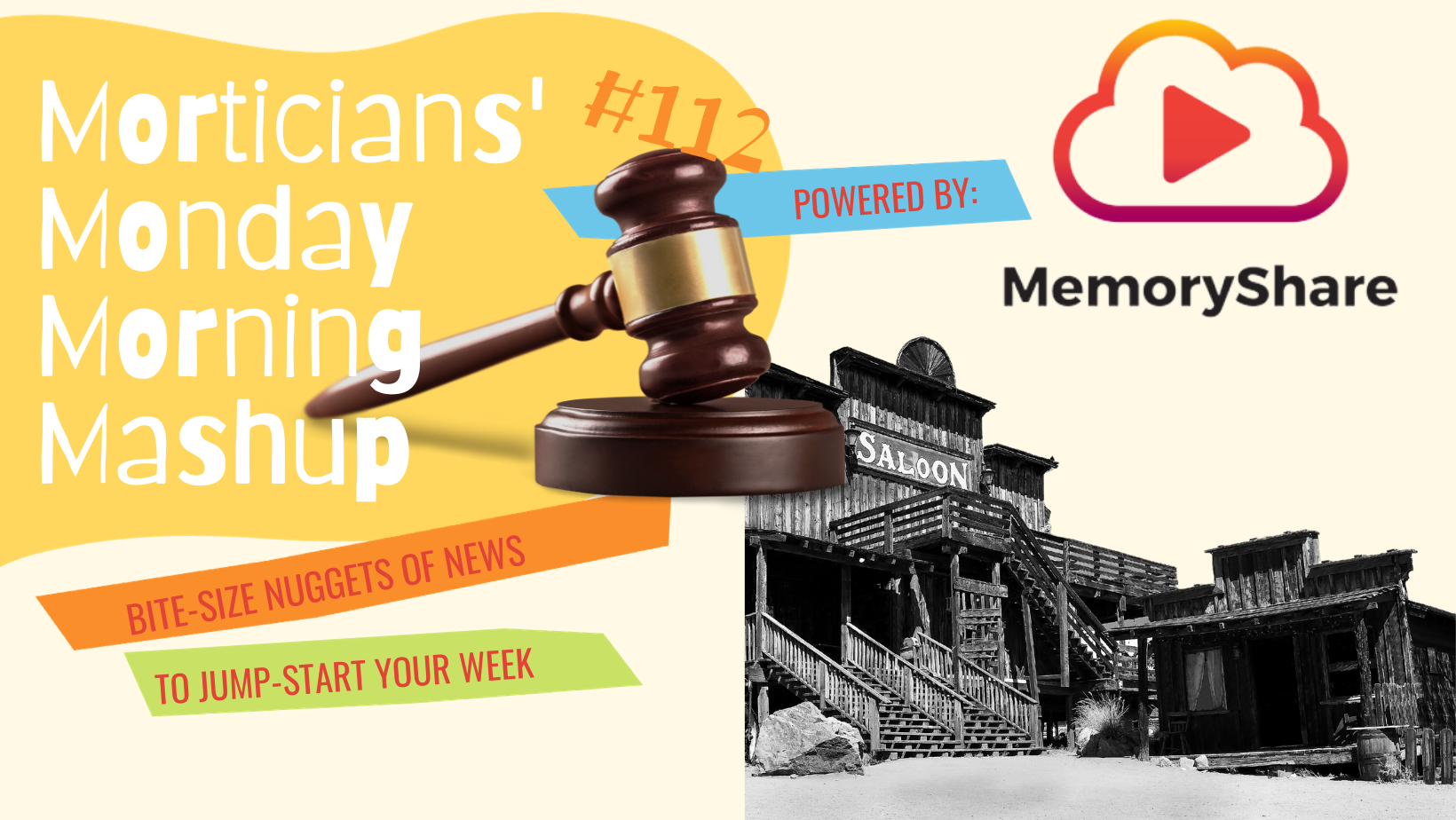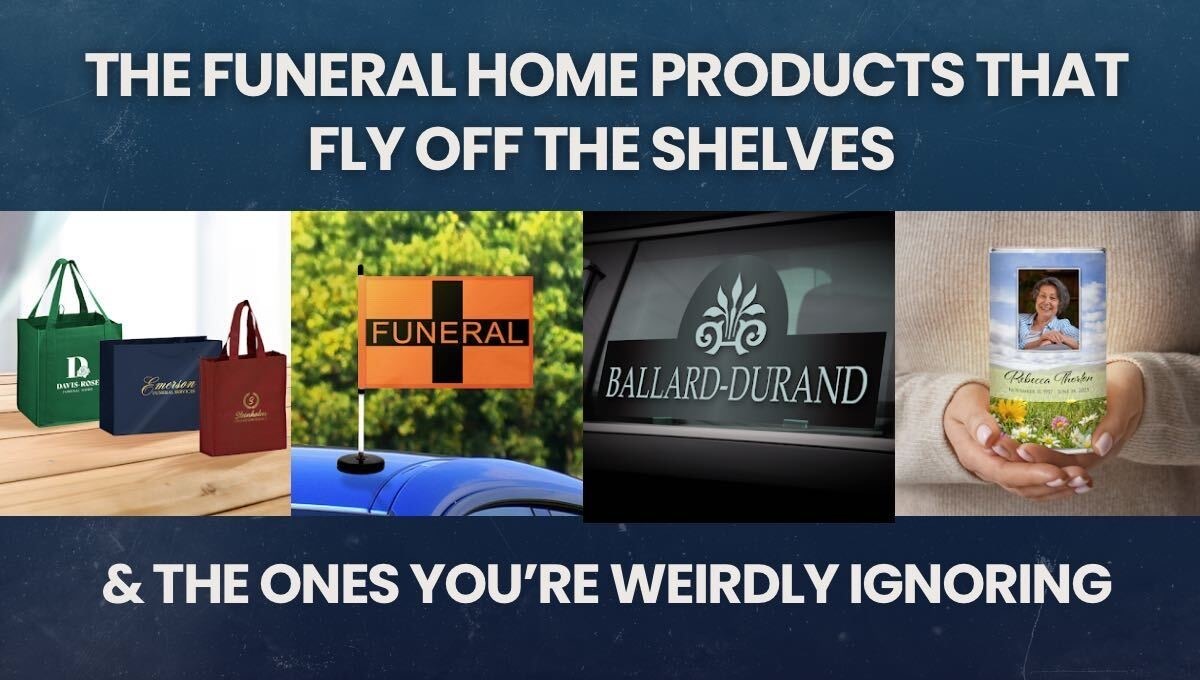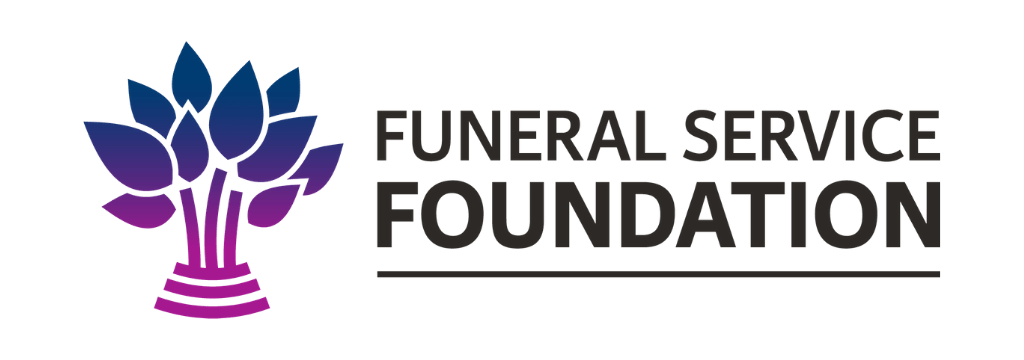Do-Not-Die Laws & Wild West Autopsies | 4M #112
Welcome to the hundred-and-twelfth edition of Morticians’ Monday Morning Mashup, 4M #112, where we’ll serve up bite-sized, easily-digestible nuggets of the deathcare news you need to crush conversations in the week ahead. Bon appetit!
This newsletter is powered by MemoryShare, a funeral livestreaming platform that you can set up in 30 seconds or less.
Veterans memorials
Although it started as a static listing of veterans buried in Veterans Administration national cemeteries, the Veterans Legacy Memorial online project has expanded to include interactive memorial pages for veterans in both public and private cemeteries, even those that aren’t managed by the VA. Now the site includes records of about 10 million, or “about one-third of all veterans dating back as far as the Revolutionary War.” Today, more than 70,000 posts have been made to veterans’ pages, including some by a widow who calls her Marine sergeant husband’s site her “radio to heaven.” Website admins are already working on adding pages for 26 overseas cemeteries in addition to other stateside burial places, and hope to one day allow families to request new pages for veterans who haven’t yet been included. They’re always looking for volunteers to help with the project, as well.
Ask a simple question …
A well-meaning widow who probably thought she was asking a priest an innocent question may feel the need for confession and penance after the scolding she took in a Catholic Times Q&A column. “B.T.” asked Father Paul J. Keller’s advice on whether her children should mix and scatter her eventual cremains with her husbands’ or if they should split the mixture amongst themselves as they’d requested. Father Keller responded, “I can only wonder if you, dear B.T., have forgotten that Christ died for you, body and soul, […]. I say this because you seem more worried about what appears to be a pagan practice of mixing your cremains with your husband’s and then sprinkling them in a place you idealized.” Ouch.
Catholics + cremains, part two
Interestingly, a same-day post in the Denver Catholic offers a more acceptable alternative for cremains disposition in the eyes of the church: “Bringing them home” to a cemetery for burial or entombment. Because keeping a loved one’s cremains at home is “not a healthy choice,” Catholic Funeral & Cemetery Services (CFCS) allowed 39 families the opportunity to respectfully inter their loved ones’ cremains in a cemetery crypt for free on All Souls Day.
Napping cowboy
Recently Buzzfeed shared some of the best entries in a Reddit post sharing the highest-paying jobs that don’t require a college degree. This one came in at number two: “I do autopsies as a[n] autopsy tech and make $50k without over time. I take out peoples’ organs and give them to a doctor to do the actual autopsy. Then I sew up, clean up, and release bodies to funeral homes. It’s smelly work, and you see things you can never unsee. But the death industry is the last Wild West, and I have a lot of down time for reading and naps.” Yippee ki yay, funeral directors.
Best. Law. Ever.
A 2007 mandate in a small French village that prohibited inhabitants from dying may have been “absurd,” but it was certainly effective. Then-mayor Philippe Guérin was frustrated that local authorities wouldn’t approve a much-needed burial space for the 20,000-inhabitant town of Cugnaux. They did, however, approve the construction of a new supermarket. To “put the spotlight on the town and its pressing issue,” Guérin declared that anyone “who didn’t have a burial space already allocated in the existing cemetery” was prohibited from dying “on the territory of the town” and if they were “found in breach of this measure,” they would be “severely punished.” The law was struck down soon after it was passed, but it worked. Soon after journalists came from all over the world to interview the mayor, his request for a new cemetery was approved.
Legacy’s horrible legacy
Just as we’re dealing with the aftermath of the Return to Nature tragedy in Colorado, another deathcare-related drama has reared its ugly head. In 2022, the Federal Trade Commission sued Legacy Cremation Services and its owner, Anthony Damiano, for violating the FTC Act and the Funeral Rule. Damiano was fined $275,000 and warned to be more transparent about his pricing. Even so, he’s continued doing business, and now a Texas family has come forward alleging Damiano’s company is holding a loved one’s cremains hostage, demanding that the family pay the balance of a bill that was more than four times what they had agreed to. Texas is one of 10 states that have either fined or suspended the licenses of Damiano’s various companies, but apparently some Texas-based entity is still contracting with him. James White, executive director of the Texas Funeral Service Commission, told a news outlet that “whoever is working with Damiano now is risking their own livelihood.”
Close to home
While the horrific Return to Nature situation may have shone a negative light on deathcare as a whole, some people are working hard to remind the public that one bad apple certainly doesn’t spoil the whole bunch. Dick Wadhams, a Republican political consultant and a former Colorado Republican state chairman, recently wrote a piece for the Denver Gazette with the title “An honorable profession was unfairly tainted.” Wadhams has a unique, yet undeniably objective, perspective on the subject: Not only did he work as a mortuary assistant during his college years, but the remains of both his sister and brother-in-law were entrusted to Return to Nature. The remains of his sister, who died in 2020, have been identified, but the fate of her husband is unknown. In his raw and compelling article, Wadhams describes the true professionalism of those he encountered during his years in deathcare and beyond. He also expresses his hope that as legislators consider revisions to Colorado’s deathcare laws, they will “keep in mind that the vast majority of funeral homes are run responsibly and professionally and should not be punished for the actions of these monsters.”
Say goodbye to Facebook
If you’re using Facebook for live streaming, does this sound familiar?
- Copyrighted music is silenced (even with proper certifications!)
- Advertisements out of your control pop up during the livestream
- It’s difficult for families to access because it requires a Facebook account
This is why Carlton Stevens Jr., Operations Manager and Mortician at Stevens Funeral Home in North Carolina, said goodbye to Facebook and switched to MemoryShare—a live streaming platform built specifically for funeral professionals.
“Now, families don’t have to worry about Facebook accounts. It works, and it’s easy to use,” Carlton said. “It’s the best, I’m telling you. It’s liquid gold.”
After he started offering live streaming during the pandemic, Carlton saw Stevens Funeral Home call volume bump from 20 calls to 41 calls.
Today, Stevens Funeral Home live streams a service every other day.
And with MemoryShare, all they have to do is push a button.
“It’s a no brainer,” Carlton said.
Read how Carlton is using livestreaming to grow his business in our latest case study—click here to read it!




